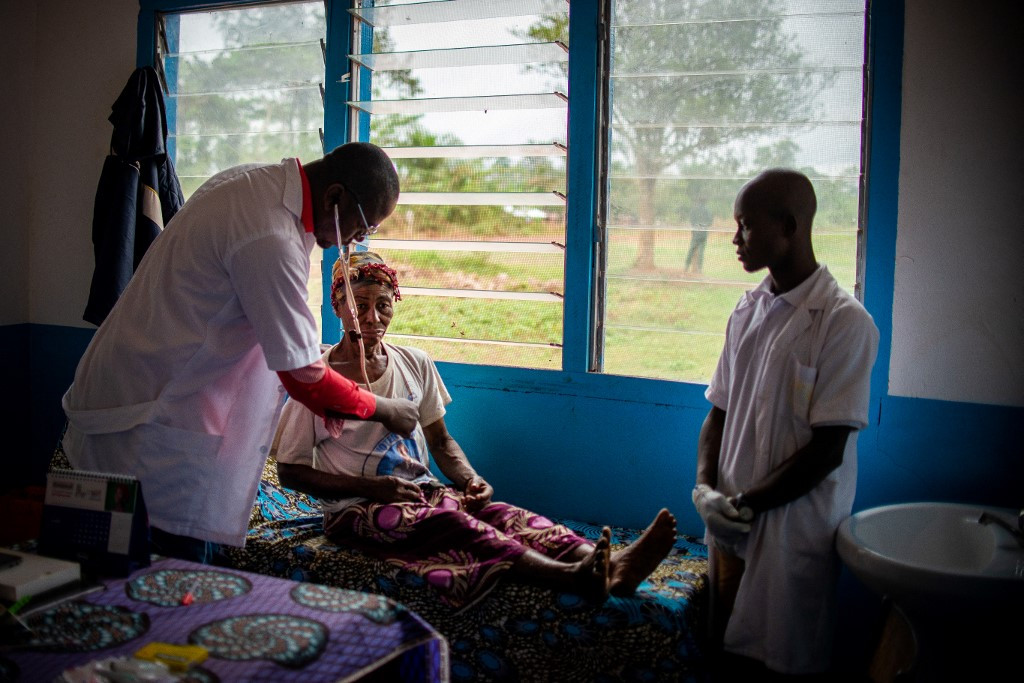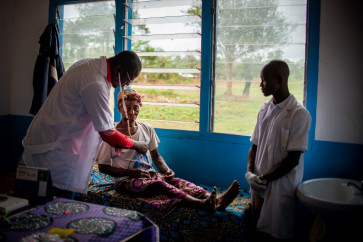Popular Reads
Top Results
Can't find what you're looking for?
View all search resultsPopular Reads
Top Results
Can't find what you're looking for?
View all search resultsCentral Africa’s Aka Pygmies struggle with stigma and poverty
Change text size
Gift Premium Articles
to Anyone
In Central Africa, indigenous people gain access to health but deforestation threatens their traditions.
Juliette sits up on the examining table and slowly pulls up her top to reveal a back marked by a constellation of fine scars and deformed by a huge abscess.
She smiles despite the nasty-looking growth on her back and her other symptoms: chest pains, dizziness and parasites.
Juliette is in her 50s, but this places her among the very oldest of the Aka — a Pygmy people living in remote southwestern Central African Republic (CAR).
"I live between the forest and the village," she says.
It is the very first time she has had access to modern medicine.
That she has is thanks to a free clinic set up by Senitizo, a small US non-profit specializing in providing access to medical care in parts of the country that would not otherwise get it. They started work here last June.



















